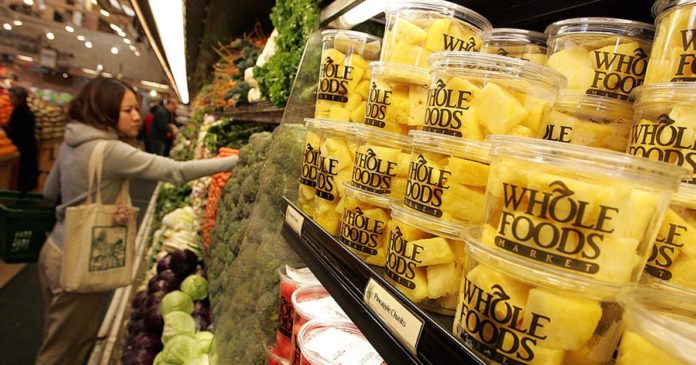
If you’re ever in the mood for a giggle, fling “millennials, ” “brands, ” and “marketing” into the ol’ Google and give the internet a peruse.
At any specific moment, marketing executives around the world are being paid gazillions of dollars to figure out the mystery behind what millennials buy and why we buy it. With the tactical accuracy of the three blind mouse, advertisers devise absurd strategies to capture our attention, launching campaigns that they think are lighted af but fall miserably short of the goals and targets.
Especially in the food industry, marketers act like millennial behaviour is altogether uninterpretable.( Remember when they tried to say we don’t eat cereal because we’re lazy? That’s why I opt for a fresh egg omelette every morning instead behavior easier .)
Millennials are older now and starting to make up more of the world’s annual spending, so whether they like it or not, brands will still have to take our predilections more seriously . And( to their abject horror, I accept) what they’re determining is that what we want is not only pretty simple, but could also have a positive impact on the food industry at large.
For starters, millennials want more realities about the food we consume.

Not too much to ask, right? As the first generation that grew up alongside rather than ahead of the internet, millennials learned at a young age that any knowledge we want is datum we can get as long as we enter the right search terms. Our ability to instantaneously verify any claim an advertisement stimulates is why simply 1% of millennials report being swayed by traditional marketing strategies. We rely instead on what we can trust: ourselves.
This is having a positive effect on the food industry because it means corporations are becoming more transparent about their products to gain the confidence of millennial consumers.
In a 2012 survey of American and British adults, 8 in 10 millennials said they appreciated “behind the scenes” commercials for their food, like Whole Foods Market’s Values Matter campaign, which links back to a page where the readers can confirm the company’s sustainability claims personally. By comparing, simply 6.5 in 10 baby boomers indicated that they craved more information about their food from brands.

Millennials look to the facts for proof that the products we buy are doing good.
GlobeScan CSR has coined a term for this kind of shopper aspirationals, or “materialists who believe they have a responsibility to purchase products that are good for the environmental issues and society.” Millennials tend to fall into this category, with 40% of us preferring to shop local and nearly 75% of us willing to pay extra of achieving sustainable goods.
Shopping local and sustainable render cuts down on garbage and pollution. It also boosts local economies and ecosystems .

As a outcome, brands are being forced to do better in order to stay competitive in a millennial-driven market.
To satisfy our desire for fact-based corporate responsibility practises, corporations that already had these practices in place, like Whole Foods, are pushing that knowledge out into the open, heightening the overall level of clarity in the food industry at large.
In 2015, 81% of S& P 500 corporations liberated sustainability reports, up from 20% in 2011. In response to this pressure, the brands that aren’t fulfill the same high responsibility criteria are being forced to change their practises to remain competitive. Even eateries that are considered categorically unhealthy have launched plans to up their corporate practises, like McDonald’s, which in 2014 announced its intent to gradually switch to sustainable beef.
As market demand( and brand allegiance) changes toward environmentally and socially conscious business, corporations are adapting, even before governments step in to enforce regulations.

There’s one more behavior to capture a millennial’s brand allegiance: Take a stand on something.
Millennial consumers aren’t merely interested in a company’s ethics where its own business is concerned. Brands that advocate for social causes, such as LGBTQ rights, immigration law, and gender equality gain favor with millennials. Companies, like Starbucks, which not only exhibit ethical corporate policy and excellent employee therapy, but also frequently speak out on social and political issues, have some of the most powerful brand-loyal customers worldwide.
As millennials take the wheel on driving the market, the food industry could also get a lot more culturally diverse.
As a group, millennials are more ethnically diverse than our predecessors and have a more welcoming position toward new and different food cultures. The Hartman Group’s study on generational food trends reports that millennials are 10 -2 0% less interested in classic American or Americanized ethnic meat than baby boomers, and they express an increased interest in different kinds of world cuisine. A developing is asking for international food could present a wider niche for new business opportunities, like immigrant-owned restaurants.

The takeaway? Once marketer stop hating on millennial predilections, the whole industry should insure an increase in pro-social, sustainable food culture.
While it’s true that millennials might present more of a challenge to marketers than in the past, that’s a really good thing. It suggests that the market is being driven by a smarter, more empathetic consumer base, which in turn is driving companies to pick up more socially and environmentally responsible practises that benefit all of us.
Read more here: http :// www.upworthy.com /~ ATAGEND







